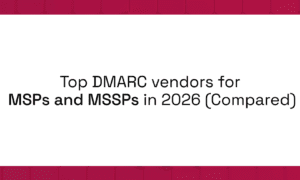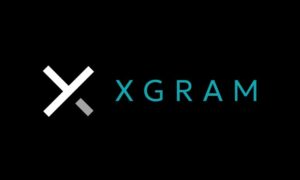Did you know that 55% of businesses worldwide are actively exploring the use of blockchain technology to enhance their operations?
In this article, we will delve into the various ways in which blockchain is revolutionizing the business landscape.
From streamlining supply chain management to improving data security and privacy, blockchain has immense potential to transform how businesses operate.
Join us as we explore the benefits, applications, and challenges of integrating blockchain into your business operations.
Key Takeaways
- Blockchain enhances security and transparency in business operations.
- It revolutionizes supply chain management by increasing transparency, security, and efficiency.
- Blockchain bolsters data security and privacy by ensuring immutability of transactions and using encryption to secure data.
- It improves transparency and trust in business transactions by providing a secure and immutable record of transactions and eliminating the need for intermediaries.
Benefits of Blockchain Technology in Business Operations
One of the main benefits of blockchain technology in business operations is its ability to enhance security and transparency. With blockchain, you can securely record and verify transactions without the need for intermediaries. This means that there is no central authority controlling the data, making it less susceptible to fraud and manipulation.
By using cryptography, blockchain ensures that information stored on the network is tamper-proof. Every transaction is recorded in a block and linked to previous blocks, creating a chain of information that cannot be altered. This level of security provides businesses with peace of mind knowing that their data is protected from unauthorized access or tampering.
In addition to enhanced security, blockchain also offers transparency in business operations. The decentralized nature of the technology allows all participants in a network to have access to the same information, eliminating issues related to trust or lack of transparency. Transactions can be traced back to their origin, providing a clear audit trail for every step along the way.
Furthermore, blockchain enables real-time visibility into supply chains and other complex processes. By tracking products from production to delivery through smart contracts embedded in the blockchain, businesses can ensure product authenticity and reduce counterfeiting risks.
Overall, by enhancing security and transparency in business operations, blockchain technology brings numerous benefits that can revolutionize industries across the globe.
Streamlining Supply Chain Management With Blockchain
Improve your supply chain management by streamlining it with the use of blockchain technology. Blockchain has the potential to revolutionize how businesses manage their supply chains, providing increased transparency, security, and efficiency. By utilizing blockchain, you can create a decentralized and immutable ledger that records every transaction along the supply chain in real-time.
With traditional supply chain systems, there are often delays and errors due to manual data entry and lack of visibility. However, with blockchain technology, you can automate many processes and eliminate the need for intermediaries. This means that you can track products from their origin to their destination with complete accuracy.
Blockchain also enhances security by encrypting each transaction and storing it across multiple computers in a network. This makes it nearly impossible for hackers or fraudsters to manipulate or tamper with the information. Additionally, because blockchain is decentralized, there is no single point of failure, reducing the risk of data loss or system downtime.
Furthermore, blockchain enables smart contracts which automatically execute once specified conditions are met. These contracts can streamline payment processes by eliminating paperwork and reducing disputes between parties involved in the supply chain.
Enhancing Data Security and Privacy Through Blockchain
By utilizing blockchain technology, you can bolster data security and privacy within your supply chain management system. Blockchain provides a decentralized and immutable ledger that enhances the security of your sensitive information.
Here are some ways in which blockchain can enhance data security and privacy:
- Immutability: With blockchain, every transaction is recorded in a block that cannot be altered or tampered with. This ensures the integrity of your data and prevents unauthorized modifications.
- Encryption: Blockchain uses advanced cryptographic algorithms to secure data, making it virtually impossible for hackers to access or decipher the information stored within the blocks.
- Permissioned Access: Blockchain allows you to control who has access to your supply chain data. You can define permission levels for different participants, ensuring that only authorized individuals can view or modify specific information.
With these features, blockchain technology offers enhanced protection against cyber threats and unauthorized access. By implementing blockchain into your supply chain management system, you can safeguard critical business data while maintaining transparency and trust among all stakeholders involved.
Improving Transparency and Trust in Business Transactions With Blockchain
Utilizing blockchain technology in your supply chain management system ensures greater transparency and trustworthiness in your business transactions.
Blockchain, a decentralized digital ledger, provides a secure and immutable record of all transactions that take place within the network. By implementing blockchain into your supply chain management system, you can enhance visibility across the entire process, from the sourcing of raw materials to the delivery of finished products.
With blockchain, every transaction is recorded and verified by multiple participants in real-time. This eliminates the need for intermediaries and reduces the risk of fraud or tampering with data. As a result, you can have full confidence in the accuracy and integrity of your business transactions.
Furthermore, blockchain enables greater transparency by providing all stakeholders with access to relevant information. Each participant in the supply chain can view and track the movement of goods at every stage, ensuring accountability and preventing any unauthorized changes or discrepancies.
The use of smart contracts on blockchain further enhances trust in business transactions. Smart contracts contain executable code that implements the terms of an agreement, automatically executing actions like payment transfers when specified conditions have been fulfilled. These contracts eliminate manual processes and reduce human error, ensuring that every party involved receives what was agreed upon.
Blockchain Applications in Financial Services and Banking
With blockchain technology in financial services and banking, you can revolutionize your transaction processes and enhance security. Blockchain offers a decentralized and transparent system that can streamline various operations in the industry.
Here are some ways blockchain is being applied in financial services and banking:
- Payment Settlement: Blockchain enables faster and more efficient payment settlement by eliminating intermediaries such as clearinghouses or correspondent banks. This reduces costs and minimizes the risk of errors.
- Identity Verification: Through blockchain, individuals can have secure control over their personal data for identity verification purposes. This eliminates the need for multiple identity checks across different platforms, enhancing convenience and privacy.
- Smart Contracts: Smart contracts automate contract execution using predefined rules stored on blockchain. They ensure compliance, minimize disputes, and reduce reliance on intermediaries for contract enforcement.
Implementing blockchain technology in financial services and banking has the potential to revolutionize traditional systems while increasing efficiency, transparency, and security. By taking advantage of this innovative technology, you can stay ahead in an ever-evolving industry where trust is paramount.
Utilizing Smart Contracts to Automate Business Processes With Blockchain
Improve efficiency and streamline your business processes by automating them through smart contracts powered by blockchain technology.
Smart contracts are autonomous programs that execute agreements automatically when predefined conditions are met, with the contractual clauses directly encoded in programming language. They automatically execute transactions, eliminate intermediaries, and ensure transparency and immutability.
By utilizing smart contracts on a blockchain network, you can automate various aspects of your business operations.
For example, contract management can be simplified as smart contracts automatically enforce agreed-upon terms and conditions without the need for manual intervention. This reduces human error and saves time spent on administrative tasks.
Additionally, supply chain management can be greatly enhanced through automation using smart contracts. Blockchain’s decentralized nature ensures that all parties involved have access to real-time information about the movement of goods. Smart contracts can trigger automatic actions such as payment release or quality control checks based on predefined conditions being met.
Furthermore, by leveraging smart contracts in areas like procurement or customer service agreements, you can reduce paperwork, improve accuracy, and expedite processes. Payments between businesses can also be automated using these intelligent contracts, eliminating delays caused by traditional banking systems.
Overcoming Challenges and Adoption Barriers of Blockchain in Business Operations
Overcoming challenges and adoption barriers, you can automate your business processes efficiently by implementing smart contracts powered by blockchain technology.
First and foremost, implementing blockchain technology requires a significant shift in mindset and organizational culture. You need to embrace the decentralized nature of blockchain and be willing to let go of traditional centralized systems. This change can be difficult for some businesses, but it is necessary to fully leverage the benefits of blockchain.
Another challenge is the lack of standardized regulations surrounding blockchain technology. As a business, you need to navigate through uncertain legal frameworks and ensure compliance with existing laws. This can be time-consuming and complex, but with proper research and guidance, you can overcome these obstacles.
Additionally, there is a general lack of awareness and understanding about blockchain among businesses. Many decision-makers are still skeptical or unaware of its potential benefits. Educating yourself about the capabilities and applications of blockchain will enable you to effectively communicate its value proposition within your organization.



































